Keeping a tortoise can be complicated. Not only do they need the correct diet and housing, they also need the right kind of light, too. What many people do not know is that sunlight is made up of different UV light rays and it is essential that tortoises receive the right rays to be able to thrive. Here’s everything you need to know about tortoise lighting: what kind your pet needs and which bulbs you should buy.
What Lighting Do Tortoises Need?
When we say “lighting” we are talking about replicating natural sunlight. In the wild, tortoises would have the sun beating down on them all day, and it’s that lighting that is vital to their survival. Sunlight is made up of different UV rays, each having different benefits when it comes to your tortoise’s basic needs, and each required in your tortoise table set up to make sure that your tortoise remains healthy.

What is the Difference Between UVA and UVB?
UVA light helps regulate the necessary, everyday behaviours, you should see such as feeding, moving around, sleeping, and mating.
UVB, on the other hand, is vital in your tortoise’s growth and development. UVB light enables tortoises to synthesise vitamin D3 which, in turn, allows them to absorb calcium. As with other animals, calcium is needed to develop healthy bones and, in the case of the tortoise, a healthy shell, too! It will also help female tortoises form eggshells for viable eggs.
What Will Happen if They Don’t Get the Right Lighting?
If your tortoise does not receive sufficient lighting and UV rays, then it can suffer from a lot of different health issues.
Metabolic bone disease occurs when tortoises don’t receive enough UVB light and therefore cannot synthesize vitamin D3. This causes soft bones and a soft shell, both of which can be very dangerous for a tortoise. It can have long-lasting effects and lead to conditions such as osteoporosis and osteomalacia.
They will also become lethargic and lose their appetite, which can have some dangerous repercussions on your pet tortoise’s general health and wellbeing.
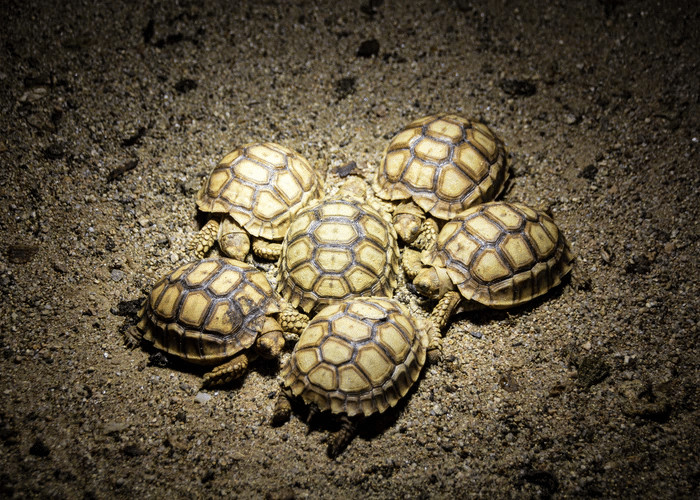
Setting Up Your Tortoise Enclosure
If your tortoise lives outside or has access to an outdoor enclosure, then they should get everything they need from the natural light. However, if you ever have to shut your tortoise indoors for a period of time, or they live permanently in a tortoise table then you need to consider how to give them the UV light that they need to survive.
UV light gets filtered when passing through glass or plastic therefore it will not have the same benefit on your shelled reptile if you place them by a sunny window.
What Kind of Tortoise Lighting Should You Buy?
You can buy bulbs for UV light, bulbs for heat, and bulbs for just normal light, so we understand how it can be difficult to know exactly what to buy. You can even buy bulbs that offer a combination of all of them!
UVB Bulbs
The preferred option for providing UVB light is a fluorescent light strip as it covers a large surface area; although it looks like the normal strip lights you see in shops and classrooms, you need to buy one specifically for UVB light so always check the packaging. You can also buy corkscrew bulbs that screw into fixtures or can be attached to a clamp but you may want to buy a couple of these to cover the same area and make sure that your tortoise is getting the UVB rays that it needs.
Look for lamps with a reflector attached to maximise the UVB that your tortoises receive and so none is lost into the empty room.
UVB lamps are categorised by their output which is measured in percentage. Most European and Mediterranean tortoises do well with 10-12% UVB output, while tropical tortoises prefer less.
Combination Bulbs
If you don’t have the space to buy multiple lamps for all of your tortoise’s heat and UV light needs, you can opt for a combination bulb that emits both. Also known as mercury vapour bulbs, these are excellent options for your tortoise, however, you need to be aware that while your tortoise may need heat during all hours of the day, they most definitely do not require UV light all the time.
Tortoises are used to the temperature dropping relatively low at night so most will be fine if you turn off their heat source when they go to sleep. However, if your house gets pretty chilly at night or your species of tortoise is particularly sensitive to the cold, you may want to buy a separate heat lamp that can be kept on to maintain their ideal temperature. Ceramic heat lamps tend not to emit any light so are perfect for nighttime use.
Coloured Bulbs
There are different coloured bulbs available depending on what you need them for:
- Ceramic bulbs do not emit any light, only heat so can be used throughout the day and the night
- Black or red lights can be used at night to provide additional heat but will not affect your tortoise’s circadian rhythm
- White, blue, or fluorescent lights should only be used during the day as they are bright and mimic the natural light that tortoise’s would experience in their natural habitat
How To Set Up My Tortoise Lighting
Make sure that you have the correct fittings to be able to attach these lamps to your enclosure; some will come with special arms or a clamp to help with this, otherwise, you should look into purchasing some additional attachments.
Depending on what kind of tortoise lighting you opt for, the light needs to be a specific distance from your tortoise. If the bulb is too close, then it will be too hot and can cause thermal burns and dehydration, however, if it is too far away then your tortoise will not be getting the UV light it needs.

How far your bulb should be will depend on the kind of bulb you have, the UV output, as well as the wattage, so check the directions before finalising the positioning of the clamp. Also, bear in mind that the distances mentioned should be measured from the top of your tortoise’s shell, and not from the ground.
You also need to be sure that there is no barrier between your tortoise and the UV lamp; UVB rays do not travel well through glass or plastic, and even mesh can drastically reduce the benefits of a UV bulb.
You may also want to consider buying a shade or cover for the bulb so that anyone coming to visit your tortoise will not be shocked by the bright light.
Also, bear in mind that whether it is a heat lamp or not, all of these bulbs can get very hot so care must be taken if you ever need to make adjustments.
How Many Hours of Light Does My Tortoise Need?
In the wild, a tortoise would likely be getting 8-10 hours of light each day. Therefore, you should opt to mimic this in their indoor enclosure. You can do this by manually turning your bulbs on and off yourself, or you can buy a timer that will take away that stress for you.

How Often Should I Replace My Tortoise Lighting?
Most lamps will need to be replaced every 6-12 months. Of course, you won’t be able to tell if the UVB rays are waning or not so it’s better to be on the safe side and replace sooner rather than later.
Mercury vapour bulbs are said to last longer than other kinds but should still be replaced once a year. Most brands will specify how soon you should replace them so take a look before you make a purchase as this may affect your choice.
Is a Basking Lamp the Same as a UV Light?
A basking lamp usually just provides heat therefore is also known as a heat lamp. While you can get combination bulbs, as we mentioned earlier, if something is marketed as a basking lamp then you should double-check whether it emits UV light, too.
On the other hand, if you buy a normal fluorescent UV bulb, it will likely not provide sufficient heat to generate your pet tortoise’s required temperature gradient.
Final Thoughts
Getting the right lighting for your shelled reptile is just one of the few things you need to do when setting up your tortoise enclosure. Essential for their growth and development., you should make sure that the bulbs you buy will provide all of the UV rays that your tortoises require.
When paired with adequate heating and a nutritional diet, your tortoises will surely live a happy life!




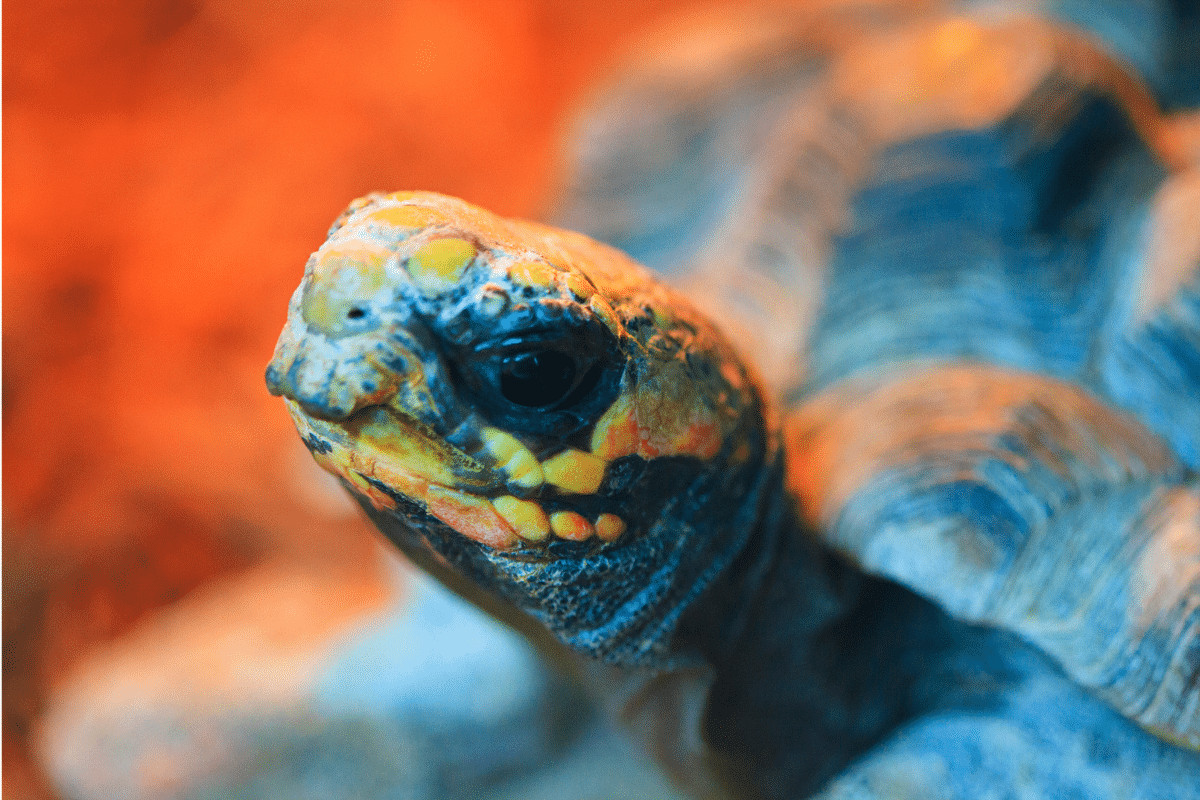
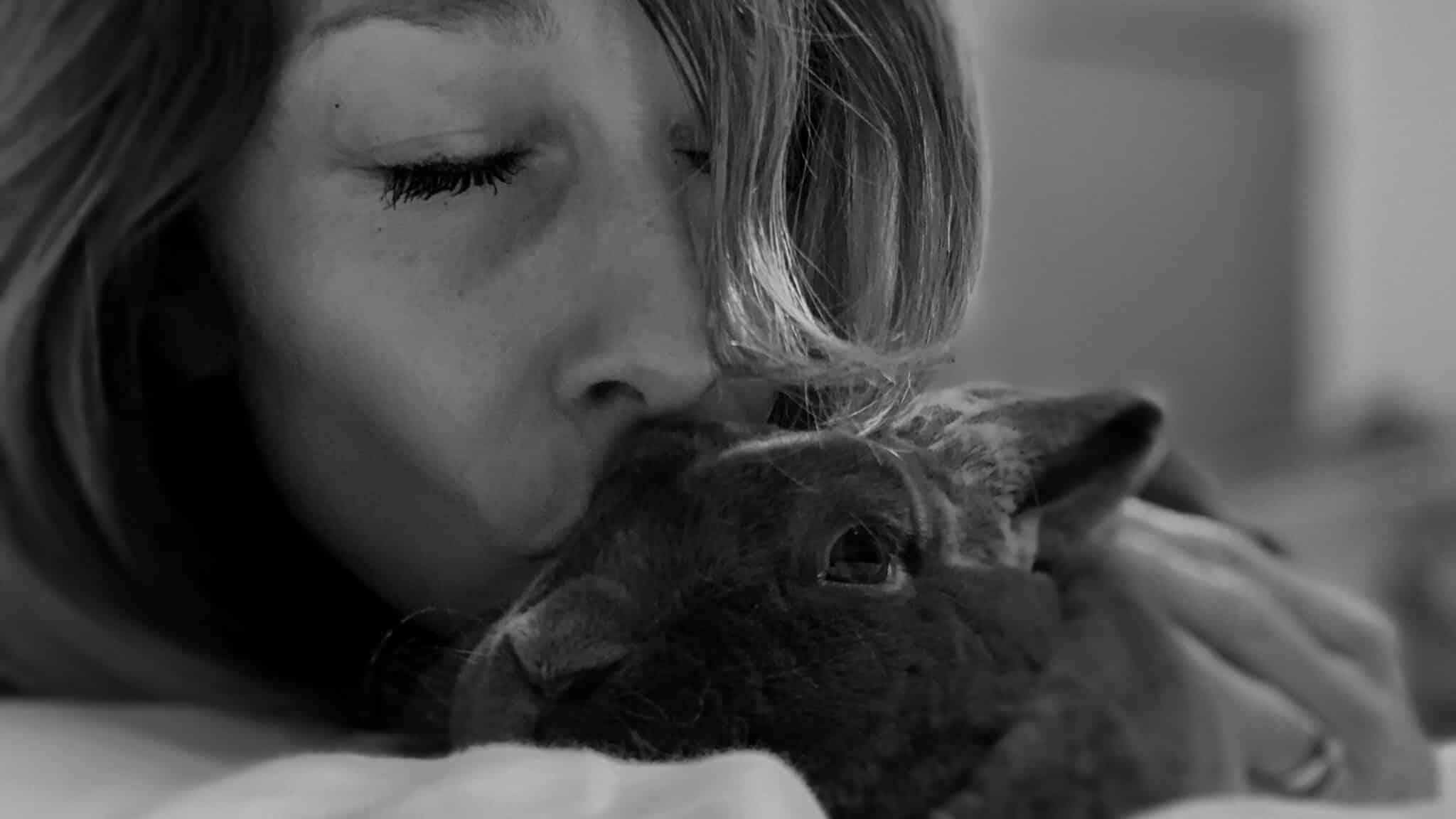

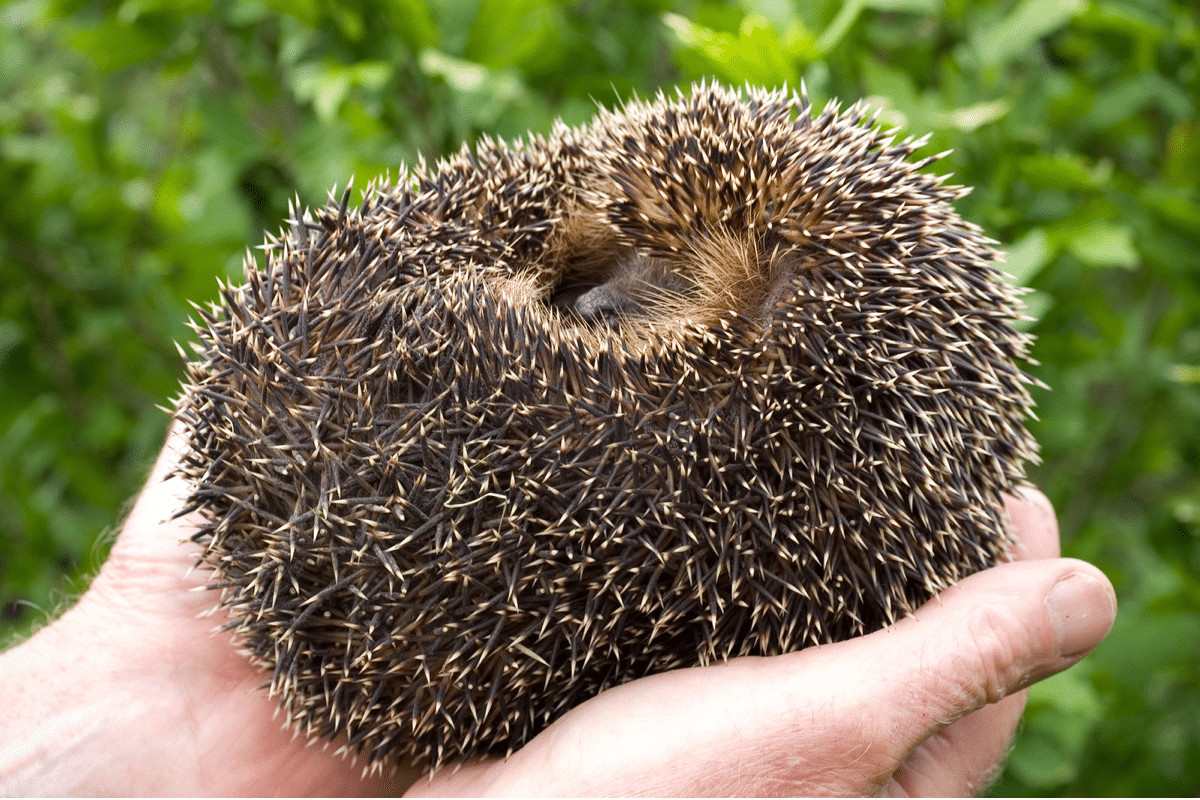


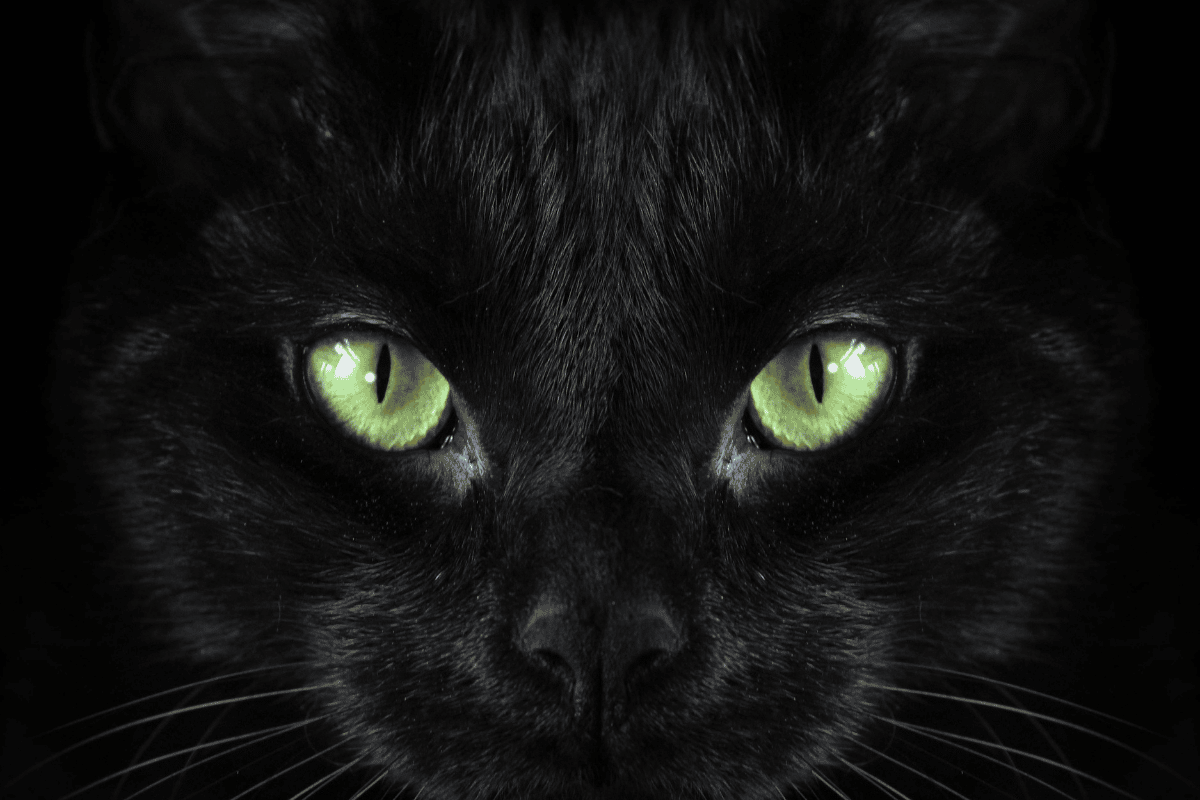






What distance should a 24w 12% uvb strip light be from the tort please?